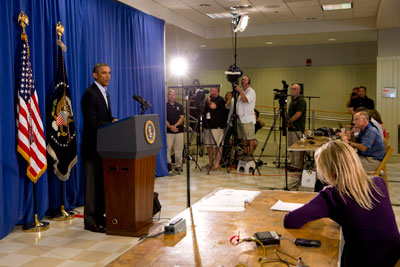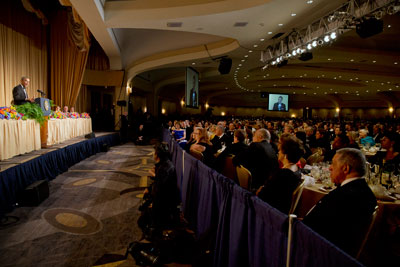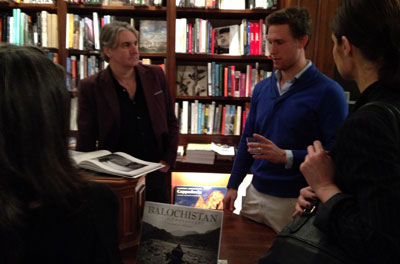
One year after CPJ’s US report, little has changed between Obama and press
After a summer plagued by war and disease abroad and partisan fighting at home, it was not hard to fathom why President Barack Obama would yearn for a retreat. But from which of the mounting crises did the president hope to escape: Ukraine? Islamic State? Ebola? The Tea Party? None of the above, according to…
CPJ urges US to mitigate threats to journalism, newsgathering
Dear President Obama: The Committee to Protect Journalists, an independent, nonprofit organization that promotes press freedom worldwide, is writing to express its concern about the effects of intelligence and law enforcement activities undertaken by agencies, over which your administration has oversight, on the free flow of news and other information in the public interest.
Free press commitment from both contenders for Afghan presidency
With little good news coming from Afghanistan amid the escalating violence and electoral standoff, here is something that goes against that tide. A coalition of Afghan journalist groups has got both presidential candidates in the disputed runoff election to endorse a 12-article statement of support for Afghanistan’s media — “Commitment of the Candidates of the…
Times correspondent ordered out of Afghanistan
New York, August 20, 2014–The Committee to Protect Journalists condemns the Afghan government’s decision to expel and ban New York Times correspondent Matthew Rosenberg from the country. The country’s attorney general accused Rosenberg today of publishing a story “considered divisive and contrary to the national interest, security and stability of Afghanistan,” according to the New…
New York Times reporter barred from leaving Afghanistan
New York, August 19, 2014–The Committee to Protect Journalists is alarmed by reports today that Afghan authorities have banned New York Times correspondent Matthew Rosenberg from leaving the country, according to news reports. Rosenberg is based in Kabul and Washington. His most recent story, published on Monday, alleged that some Afghan officials were threatening to…
Chinese journalist dismissed after writing on Hong Kong news website
New York, July 22, 2014–The Committee to Protect Journalists is concerned by the recent termination of a Chinese journalist from a monthly magazine after he wrote for a Hong Kong website. Song Zhibiao’s dismissal marks the first publicized case of its kind following recent directives by the Chinese government that bar journalists from cooperating with…
CPJ commends U.S. Supreme Court decision requiring warrant for cellphone searches
San Francisco, June 25, 2014–The Committee to Protect Journalists welcomes today’s unanimous ruling by the U.S. Supreme Court that held that law enforcement officials need search warrants to search the mobile phones of individuals they arrest. The court found that the data found in cellphones should be protected from routine inspection, news reports said.

Obama transparency record remains unimpressive
Nearly seven months ago, CPJ published its first in-depth report on press freedom in the United States, concluding that the Obama administration’s aggressive prosecution of leakers of classified information, broad surveillance programs, and moves to stem the routine disclosure of information to the press meant that the president had fallen far short of his campaign…

Blacklisted in Baluchistan
Pakistani Prime Minister Nawaz Sharif made a series of commitments to safeguard press freedom during a meeting with a CPJ delegation last week. Among them was a pledge to speak out in support of media freedom and against attacks on journalists, particularly in high-conflict areas like Baluchistan.
FCCC survey finds China abuses press card, visa process
The Foreign Correspondents’ Club of China (Beijing) published the findings of its annual visa survey last week. The findings are grim but come as no surprise following the Chinese government’s showdown late last year with members of the foreign press.